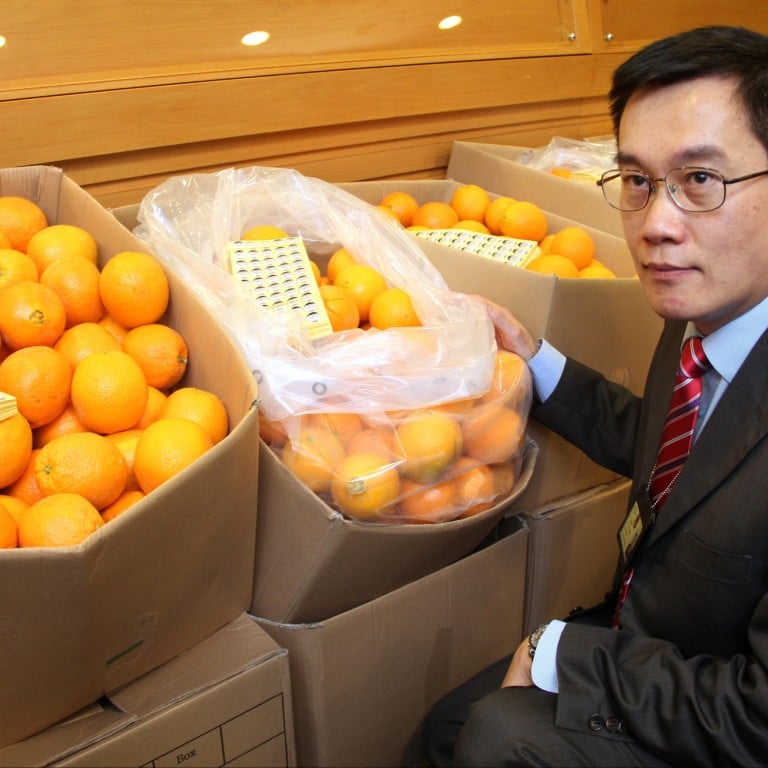
Fake oranges seizure becomes Hong Kong's first counterfeit fruit scandal
5,200 oranges with suspect Sunkist labels seized in first such case in HK
Customs officers have seized 5,200 oranges with suspected forged Sunkist labels in the first case of counterfeit oranges in Hong Kong.
The fruit was seized from two Yuen Long stalls after the buyer complained they tasted sourer than the real thing and had thicker skins.

The owner of the two stalls and three sales staff aged 19 to 62 were arrested. Apart from the oranges, 112,000 forged labels were seized, some not yet stuck on the fruit.
The officers launched a two-week investigation after receiving the complaint.
"The complainant ate the oranges and found them sourer than the usual ones. The skin was thicker too," Lam said.
The counterfeit oranges were imported from North Africa. Tests by government chemists have found them suitable to eat.
Genuine Sunkist oranges, usually imported from South Africa and California, cost HK$3 to HK$4 each and are sold to customers at HK$5 to HK$6. The counterfeit ones cost HK$1 and were sold at HK$3 to HK$4 each. The 5,200 oranges seized were estimated to have a market value of HK$90,000.
During their investigation, the officers found the staff secretly sticking the forged labels to the oranges.
The shop had posted signs prohibiting customers picking up the oranges while choosing them which Lam said he thought was done out of fear the fake labels would be spotted.
He said paper labels were cheaper and easier to print than plastic ones.
The two stalls in an outdoor market in Yuen Long were six stalls apart and had different names but were owned by the same person.
Checks of more than 10 other stalls in the market found no further fakes.
Lam said the investigation was continuing but no sign of a syndicate had been found.
The last counterfeit fruit case involved more than 130 boxes of watermelons seized in 2011, presented as having been imported from Malaysia when in fact they were from the mainland.
Under the Trade Descriptions Ordinance, anyone selling or possessing goods with a forged trademark is liable to a fine of HK$500,000 and five years in jail.
